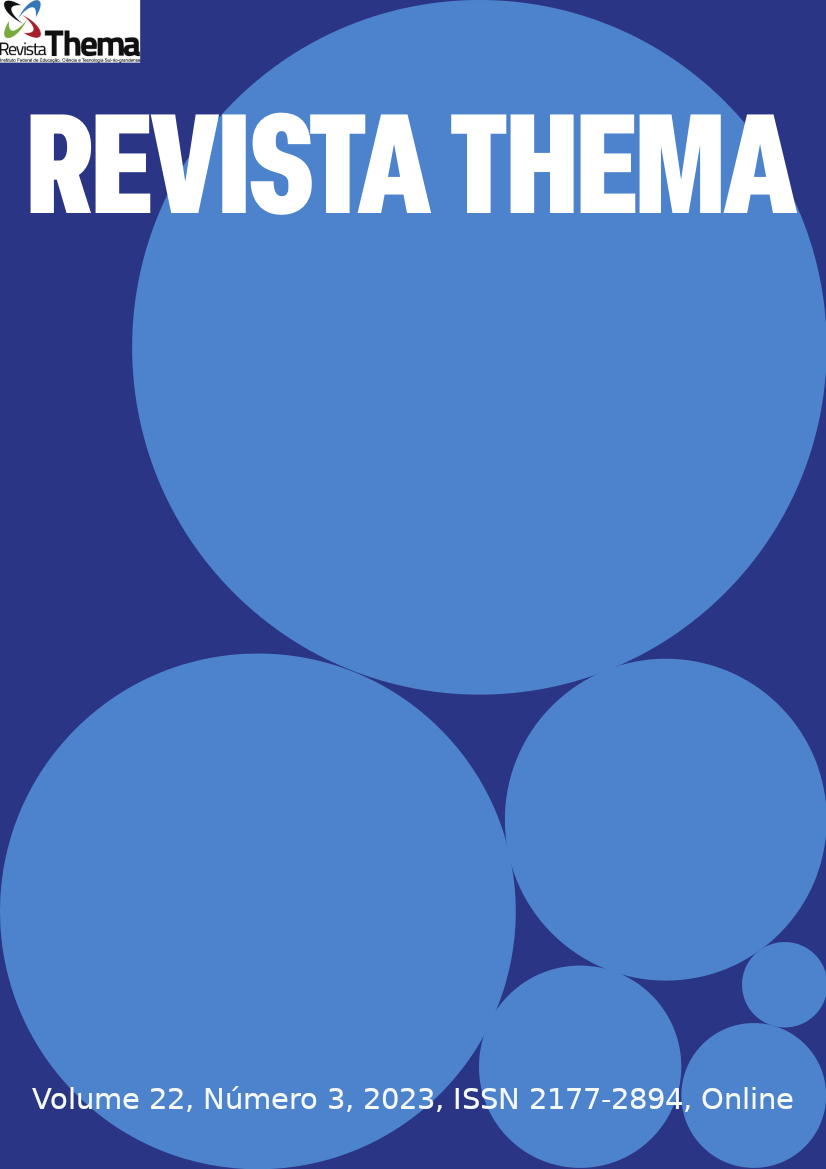Semantic universes on health promotion competencies attributed by graduate students
DOI:
https://doi.org/10.15536/thema.V22.2023.712-725.3267Keywords:
professional competence, health promotion, graduate degree, collective health, family health strategyAbstract
The Graduate Program in Collective Health invests in the work of SUS, aiming to contribute to the promotion of the population's health. The aim of this study is to describe meanings attributed by graduate students about Health Promotion Competencies. This is a descriptive study with a quantitative approach, comprising 34 students part of the Multiprofessional Residency in Collective Health (RMSC) and Professional Master's Degree in Family Health (MPSF) in Ceará. The research applies the Free Association of Words Technique with the inducing term "Competencies for Health Promotion". The prototypical (AP) and similarity (AS) analyses of the evocations were discussed in light of the matrix of Essential Competencies for Health Promotion in the Brazilian context (CompEPS). The terms 'Knowledge' and 'skill' were evidenced with high frequency in the AP, composing the central nucleus of both courses and, in the AS, the terms "care", “promotion” and "prevention" were highlighted in the MPSF, while "humanization" and "ethic" were highlighted in the RMSC. Thus, the meanings attributed by the graduate students sometimes expanded, and sometimes distanced themselves from CompEPS, implying dissonant understandings and requiring improvements in post-graduate education.
Downloads
Downloads
Published
How to Cite
Issue
Section
License
O autor responsável pela submissão representa todos os autores do trabalho e, ao enviar o artigo para a revista, está garantindo que tem a permissão de todos para fazê-lo. Da mesma forma, assegura que o artigo não viola direitos autorais e que não há plágio no trabalho. A revista não se responsabiliza pelas opiniões emitidas.
A Revista Thema é de acesso aberto (Open Access), sem que haja a necessidade de pagamentos de taxas, seja para submissão ou processamento dos artigos. A revista adota a definição da Budapest Open Access Initiative (BOAI), ou seja, os usuários possuem o direito de ler, baixar, copiar, distribuir, imprimir, buscar e fazer links diretos para os textos completos dos artigos nela publicados.
Todos os artigos são publicados com a licença Creative Commons Atribuição-NãoComercial 4.0 Internacional. Os autores mantém os direitos autorais sobre suas produções, devendo ser contatados diretamente se houver interesse em uso comercial dos trabalhos.





